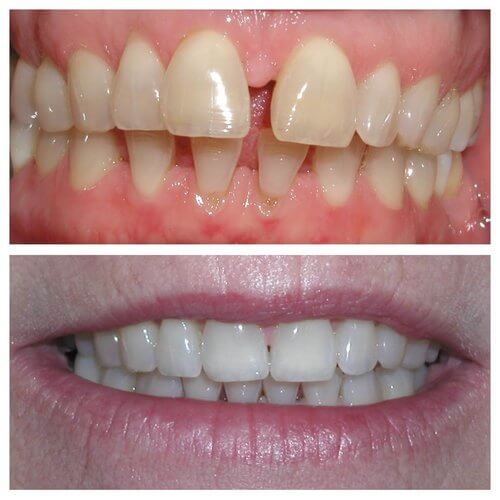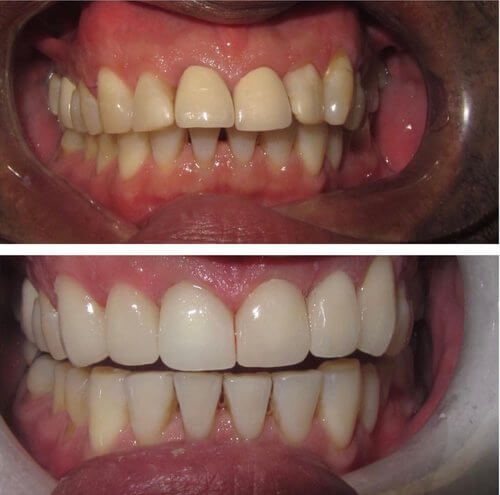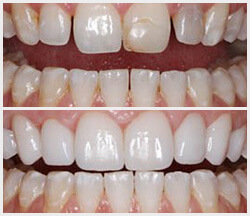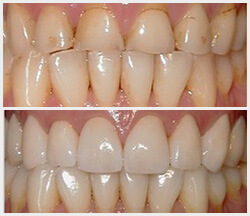The temporomandibular joint (TMJ) connects the jawbone to the skull and allows you to open and close your mouth, chew, and speak. Unfortunately, this joint can become damaged or inflamed, resulting in a condition known as temporomandibular joint disorder (TMD).
If you’ve been diagnosed with TMJ disorder, it’s necessary to know what actions you should avoid to prevent exacerbating symptoms. Our Staten Island dentists want patients to be aware of what they shouldn’t do with a TMJ disorder to help manage their condition and promote healing.
Movements to Avoid With TMD
To manage your TMD symptoms, it’s crucial to avoid movements that can exacerbate your condition, such as:
- Clenching Your Jaw: One of the most important things to avoid when you have TMD is clenching your jaw. This action can put additional stress on your already-sensitive jaw joint and worsen your symptoms. Try to be aware of when you’re clenching your jaw and consciously relax your muscles.
- Extreme Jaw Movements: Avoid jaw movements like yawning widely, singing loudly, or shouting. These actions can cause strain on the jaw joint and surrounding muscles, leading to pain and discomfort. Instead, move your jaw gently and avoid opening your mouth too wide.
- Grinding Your Teeth: Teeth grinding, or bruxism, can worsen TMD symptoms and lead to tooth damage. If you grind your teeth at night, consider using a mouth guard to protect your teeth and reduce stress on your jaw.
Foods to Avoid With TMD
The foods you eat can have a significant impact on your TMD symptoms. To reduce pain and discomfort, it’s critical to avoid certain foods like:
- Hard or Chewy Foods: Hard, crunchy, or chewy foods can put additional stress on the jaw joint. Try to stick to soft, easy-to-chew foods like mashed potatoes, cooked vegetables, and smoothies.
- Large Bites: Taking large bites of food can also strain the jaw joint and surrounding muscles. Try to take small bites and chew slowly to reduce stress on your jaw.
- Foods That Require Excessive Chewing: Avoid foods that require excessive chewing, like gum, steak, and tough bread. These foods can cause pain and discomfort in the jaw joint and surrounding muscles.
Activities to Avoid With TMD
Certain activities can put additional stress on the jaw joint and the surrounding muscles. To manage your condition and ease your symptoms, avoid:
- Holding Your Phone Between Your Shoulder and Ear: Holding your phone in this position can strain the neck and shoulder muscles, causing tension in the jaw muscles. Instead, use a headset or hold the phone directly to your ear.
- Playing Wind Instruments: Playing instruments like trumpets, trombones, and clarinets can require significant jaw movements, which can worsen symptoms. If you enjoy playing these instruments, consider taking frequent breaks and practicing proper posture to reduce strain on your jaw.
- Strenuous Exercise: Workouts like weightlifting or running can exacerbate TMD symptoms. Instead, try low-impact activities like swimming or walking, and stretch before and after exercise to reduce tension in the jaw muscles.
Frequently Asked Questions
Is it important to maintain good posture if I have TMD?
Yes, maintaining good posture can help alleviate pressure on the jaw and neck muscles, which can reduce TMD symptoms. Avoid slouching or hunching over, and instead, sit or stand up straight with your shoulders relaxed. Visit your doctor to learn more about how posture relates to TMJ disorders.
Should I avoid playing sports or participating in physical activities if I have TMD?
It depends on the severity of your TMD symptoms and the specific activity. High-impact sports or activities that require excessive jaw movement may worsen symptoms of TMD. However, low-impact activities such as walking or yoga can be beneficial for reducing stress and tension in the jaw and neck muscles. Consult your dentist to determine which activities are safe for you.
Can using a straw worsen TMD symptoms?
Yes, using a straw can exacerbate TMD symptoms as it excessive jaw movement and muscle tension. If you have TMD, it’s best to avoid using straws and instead drink directly from a cup or glass.
Can you have dental work with TMJ?
Yes, dental work is often necessary for those with TMJ disorder. Inform your dentist beforehand of your condition and any related symptoms. Your dentist can take precautions to minimize stress on the jaw joint during procedures and may recommend jaw exercises or other therapies to manage symptoms.
Discover More Helpful Tips for Managing TMD
TMJ disorder can be a painful and frustrating condition, but by avoiding certain actions and making lifestyle changes, you can reduce stress on your jaw and manage your symptoms. By taking these steps, you can protect your jaw and improve your quality of life.
To learn more, call our Staten Island office today to learn more about TMJ disorders with our dentists.



Insurance
We accept many insurances. Please contact one of our Insurance Coordinators to discuss your dental coverage plan.
(718) 948 5111
appointments@sidental.com
Open 7 days a week
Reviews
The dentists are absolutely excellent…
“I have been going here for years. The dentists are absolutely excellent and they always have an appointment available that fits into a busy schedule. I also completed invisilgn and my teeth are perfectly straight now. They also practice preventive medicine and just went in for my 6 month cleaning. Every time feel like I have a new set of choppers and best yet the check up noted no cavities!.”
— J.R
Pleasant visit
“As usual, it was a pleasant visit thanks to Dr. Nasso and her great staff..”
— C.M.
Always treated with courtesy and respect.
“Always treated with courtesy and respect. All of my questions were answered regarding upcoming treatments..”
— J.C.
Smile Profile




Put your best face forward.
Create a positive change to your teeth and your smile.
